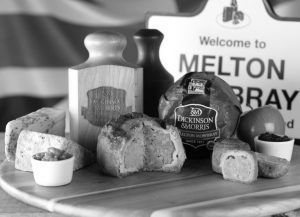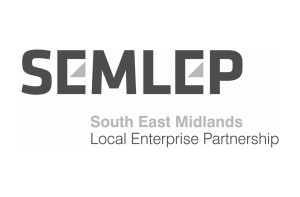Last month it was reported that some of our most famous Food exports have yet to receive formal protection in Japan, despite the UK-Japan free trade agreement being almost 3 years’ old and heralded by the UK Government at the time as a ‘historic, landmark deal’.
The UK Protected Food Names Association reported that some 77 protections, known as “geographical indication” (GI) status, remain outstanding; something that leaves UK exporters vulnerable to imitation and erosion of potential Japanese market share. Perhaps worse is the fact that some 54 Japanese food and drink products already have protected status in the UK; and many of the UK products currently exposed were once protected under the EU-Japan FTA which ceased to apply or be replaced following our departure from the UK.
Which products are we referring to? Examples are: Melton Mowbray pork pies, Whitstable oysters, Scottish wild salmon, Carmarthen ham, Yorkshire forced rhubarb, Cornish pasties, Scottish farmed salmon, white Stilton and blue Stilton, West Country farmhouse cheddar, Scotch whisky, Jersey royal potatoes, and many more.
So, what are geographical indications, how do they work, and why are they important?
GIs are effectively a form of Intellectual Property granted to products that have attributes or characteristics linked to the geography from which they originate. Importantly, they are not to be confused with trademarks which are issued by the Intellectual Property Office (IPO), GIs are issued by Department for Environment, Food and Rural Affairs (Defra), although the two bodies collaborate due to the interaction of both forms of protection.
Following Brexit, the UK introduced its own GI schemes for agri-food products, spirits, wines and aromatised wines; these schemes protect products registered as UK GIs in Great Britain (England, Wales and Scotland) only; they do not extend to products originating in Northern Ireland. As per the Northern Ireland Protocol, Northern Ireland remains in the EU Single Market for the purpose of goods, therefore products needing protection that originate in Northern Ireland need to be registered with EU GI schemes via Defra.
As a producer you can apply to register a new product under any of the four UK GI Schemes:
- food, agricultural products, beer, cider and perry
- wine
- aromatised wine
- spirit drinks
This is a prerequisite step to apply for protection via one of the EU schemes for a product name in Northern Ireland or the EU.
Alternatively, you can apply to use a product name that is already on the UK GI register, in doing so, you are committing to:
- follow the published product specification
- prove that you make and sell the registered product
- correctly use the registered GI product name and relevant logo
GIs protect genuine producers and consumers at home and overseas; they ensure that producers can maintain their reputation and market share, whilst consumers can be confident that they are buying authentic, quality products with all the characteristics they expect. They effectively prevent other producers from piggybacking and unfairly benefitting from a products reputation free of charge.
Some believe that GIs are imperative in regional economic development in so much as the marketing and promotion of GI protected products creates a positive image of the product in the minds of consumers and often boosts the economic development of the whole region from which they originate. Who knew that Cornish pasties generate £300 million for the Cornish economy (approx. 20% of the Cornish food and drink sector) and that they are the focus of foodie festivals across the globe. Furthermore, consumers who seek out GI protected products are often interested in visiting the places from where they originate, helping to boost inbound tourism.
Global Trade Department has helped hundreds of companies mitigate against their exporting risks, many of which have involved how to manage intellectual property. To discuss GIs, or other kinds of IP protection, or indeed any aspect of global trade, just book a slot with one of our specialists at a date/time that works for you in our Global Trade Clinic. These sessions are free, impartial, and confidential.














